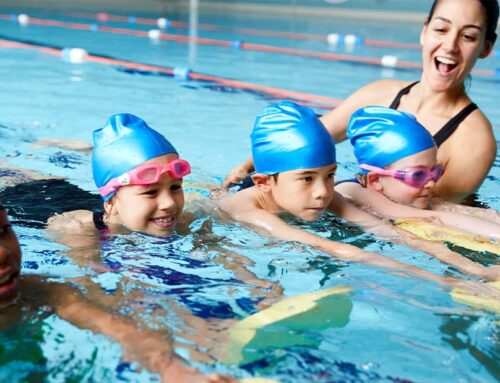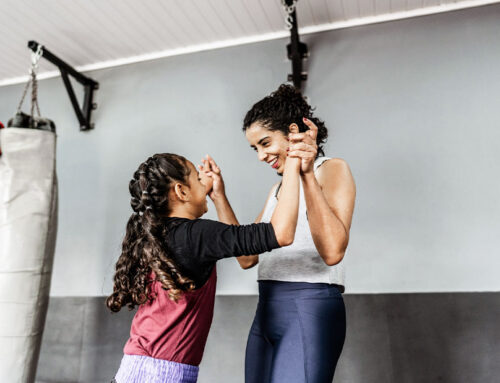Every tennis player who walks out onto Wimbledon’s Centre Court reads these two lines engraved about the door from Rudyard Kipling’s poem,
“If you can meet with Triumph and Disaster”
It is a reminder that winning and losing are part of life and that neither makes a difference to the person you are. How you react to these ‘imposters’ is a mark of character. Sport is said to reveal character rather than develop it. However, learning to lose gracefully can be taught: Coaches have a part in this, but parents and teachers also set an example.
Losing gracefully does not mean learning to enjoy losing. It means accepting the loss as part of the nature of sport and moving on to the next activity. Parents can hinder a child’s development if they never allow their child to lose. Simple things like letting them win at cards or chess may seem helpful at the time to encourage your child to do more, but if they never lose at home, then the first time they play against someone else, they are in for a shock.
My son hated losing at Pokemon when we played together, even though he had a stacked deck with much better cards, and stormed off or started to cry. I told him that I wouldn’t play with him if he kept acting like that. The same happens in playground games if children are left to sort out disputes themselves. The child who misbehaves when they lose won’t be included in the next game. Younger children often run to a teacher to say that they are being left out, and then they are forced into the game by an adult. The other kids resent this. The child who has lost has now learned that he can get his own way if he complains to an adult.
Children are very good at organizing pick-up games where the sides are equal. Playing with the other children is important at first. As they get older, scores are kept, and rivalries deepen in the playground and the park. Yet, the teams are constantly adjusted as children are missing or get called in for dinner by their parents. Very rarely does a child end up on the winning side every game.
When we look at an organized sporting activity, the coach’s ego about ‘winning’ can permeate the club and team. Older athletes, or those that have developed earlier, are selected ahead of the smaller, younger players so that the team can win on Friday night. Some clubs become ‘Super-clubs’ that attract other more prominent, older players and then run riot over the schedule with zero losses. A rugby coach that I worked with said that he wanted about 60-70% wins in a season. He said that too many wins didn’t help the players develop.
Imagine being the oldest player in your team, perhaps the biggest, and you rely on that size to dominate younger players over several years. What happens to that player when he stops growing, and everyone else catches him up or overtakes him? He may well lack the coping mechanisms and quit the sport.
Coaching Tips
Coaches can help their players lose gracefully with these simple ideas:
- Manners: a non-negotiable. Congratulate the winner with a fist bump or clap, say, ‘Well done.’
- Never moan about the officials in front of the players. Set that standard for the parents too.
- Set up your practices with even sides, constantly change them so that players lose in practice.
- Handicap races and relays: let the slower children have a head start. They learn what it is like to be ahead, the faster ones learn how to chase and dig deep to make up for a bad start.
- Trash talking, and heckling lead to a toxic environment within your squad. Teach the athletes to talk about their actions and behavior. This includes winning gracefully and thanking the opponent (Sometimes, parents need to be reminded that their super-talented child can only win if other people are willing to play with them).
- After the heat of the competitive cauldron has cooled, ask the players to write down one thing they can do to improve their performance. The coach can then use a drill or game to help develop the players’ technical/tactical skills. Positively phrasing this exercise and explicitly linking the two helps to reinforce the message that a loss can be an opportunity to learn and get better. e.g., ‘I missed two shots with my left foot.’ The coach can then have a game in training where only left-footed shots are allowed (This exercise is also good to do after a win, it helps prevent complacency).
No one likes losing, but putting it in perspective is very important. It will be hard for children to learn to lose gracefully if they have a red-faced, shouting parent on the sideline at their under-7 basketball game. Coaches are responsible for creating the culture within their team, and children will follow their example.
Read More
RECOMMENDED FOR YOU
MOST POPULAR
Every tennis player who walks out onto Wimbledon’s Centre Court reads these two lines engraved about the door from Rudyard Kipling’s poem,
“If you can meet with Triumph and Disaster”
It is a reminder that winning and losing are part of life and that neither makes a difference to the person you are. How you react to these ‘imposters’ is a mark of character. Sport is said to reveal character rather than develop it. However, learning to lose gracefully can be taught: Coaches have a part in this, but parents and teachers also set an example.
Losing gracefully does not mean learning to enjoy losing. It means accepting the loss as part of the nature of sport and moving on to the next activity. Parents can hinder a child’s development if they never allow their child to lose. Simple things like letting them win at cards or chess may seem helpful at the time to encourage your child to do more, but if they never lose at home, then the first time they play against someone else, they are in for a shock.
My son hated losing at Pokemon when we played together, even though he had a stacked deck with much better cards, and stormed off or started to cry. I told him that I wouldn’t play with him if he kept acting like that. The same happens in playground games if children are left to sort out disputes themselves. The child who misbehaves when they lose won’t be included in the next game. Younger children often run to a teacher to say that they are being left out, and then they are forced into the game by an adult. The other kids resent this. The child who has lost has now learned that he can get his own way if he complains to an adult.
Children are very good at organizing pick-up games where the sides are equal. Playing with the other children is important at first. As they get older, scores are kept, and rivalries deepen in the playground and the park. Yet, the teams are constantly adjusted as children are missing or get called in for dinner by their parents. Very rarely does a child end up on the winning side every game.
When we look at an organized sporting activity, the coach’s ego about ‘winning’ can permeate the club and team. Older athletes, or those that have developed earlier, are selected ahead of the smaller, younger players so that the team can win on Friday night. Some clubs become ‘Super-clubs’ that attract other more prominent, older players and then run riot over the schedule with zero losses. A rugby coach that I worked with said that he wanted about 60-70% wins in a season. He said that too many wins didn’t help the players develop.
Imagine being the oldest player in your team, perhaps the biggest, and you rely on that size to dominate younger players over several years. What happens to that player when he stops growing, and everyone else catches him up or overtakes him? He may well lack the coping mechanisms and quit the sport.
Coaching Tips
Coaches can help their players lose gracefully with these simple ideas:
- Manners: a non-negotiable. Congratulate the winner with a fist bump or clap, say, ‘Well done.’
- Never moan about the officials in front of the players. Set that standard for the parents too.
- Set up your practices with even sides, constantly change them so that players lose in practice.
- Handicap races and relays: let the slower children have a head start. They learn what it is like to be ahead, the faster ones learn how to chase and dig deep to make up for a bad start.
- Trash talking, and heckling lead to a toxic environment within your squad. Teach the athletes to talk about their actions and behavior. This includes winning gracefully and thanking the opponent (Sometimes, parents need to be reminded that their super-talented child can only win if other people are willing to play with them).
- After the heat of the competitive cauldron has cooled, ask the players to write down one thing they can do to improve their performance. The coach can then use a drill or game to help develop the players’ technical/tactical skills. Positively phrasing this exercise and explicitly linking the two helps to reinforce the message that a loss can be an opportunity to learn and get better. e.g., ‘I missed two shots with my left foot.’ The coach can then have a game in training where only left-footed shots are allowed (This exercise is also good to do after a win, it helps prevent complacency).
No one likes losing, but putting it in perspective is very important. It will be hard for children to learn to lose gracefully if they have a red-faced, shouting parent on the sideline at their under-7 basketball game. Coaches are responsible for creating the culture within their team, and children will follow their example.
Read More










